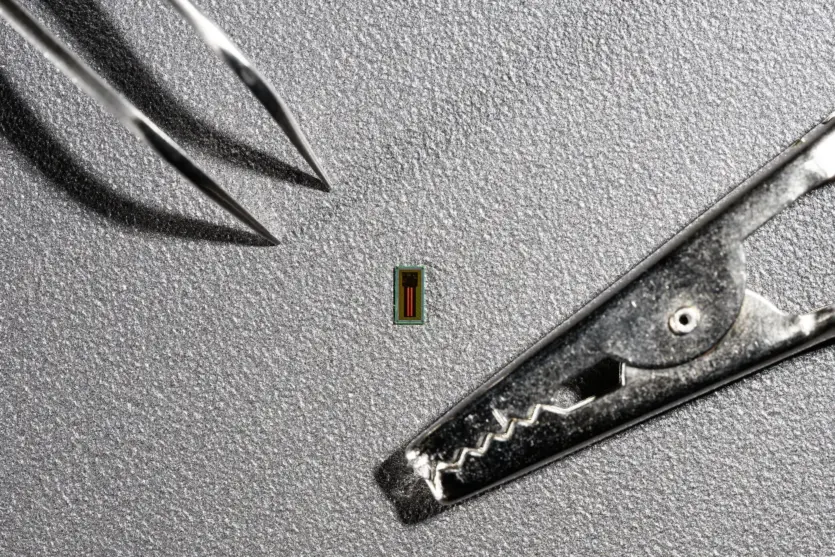
This chip is superior to its counterparts in terms of size and efficiency.
Swiss scientists have made a significant step forward in the development of brain-computer interfaces (BCIs). A team of researchers from the École Supérieure de Technique de Lausanne has created a miniature chip that can convert brain activity into text with high accuracy.
The MiBMI device consists of two thin chips with a total area of only 8 square millimeters. This is significantly smaller than Elon Musk’s Neuralink chip, which measures approximately 23×8 mm.
MiBMI is characterized by low power consumption, minimal invasiveness, and the ability to process data in real time. Unlike Neuralink, which requires implantation of 64 electrodes into the brain and processes data through an external application, the Swiss chip is a fully integrated system.
The principle of the device is to monitor the electrical activity of the brain. The chip interprets the signals that occur when a person imagines writing a letter and converts them into text. Although MiBMI has not yet been tested on humans, it has achieved 91% accuracy in converting brain activity into text in tests on real neural recordings.
The success of the new chip is partly due to an innovative approach to reading brain language signals. Researchers have identified specific neural markers that are activated when a patient imagines the spelling of each letter. These markers, called specific neural codes (DNCs), became a kind of shorthand for each letter.
The DNC system allows the chip to process only the markers, rather than the thousands of bytes of neural data associated with the representation of each letter. This significantly reduced the size of the chip and its power consumption. Scientists believe that such a system will also reduce the learning curve for people who receive the chip.
MiBMI is currently capable of recognizing 31 different characters, which is a record for such integrated systems. The researchers plan to increase this number to 100 characters.
The developers see the potential of using their invention to help people with severe motor disorders, such as amyotrophic lateral sclerosis. They are also exploring the possibilities of using the system for speech decoding and motion control.
Source: Newatlas


Spelling error report
The following text will be sent to our editors: